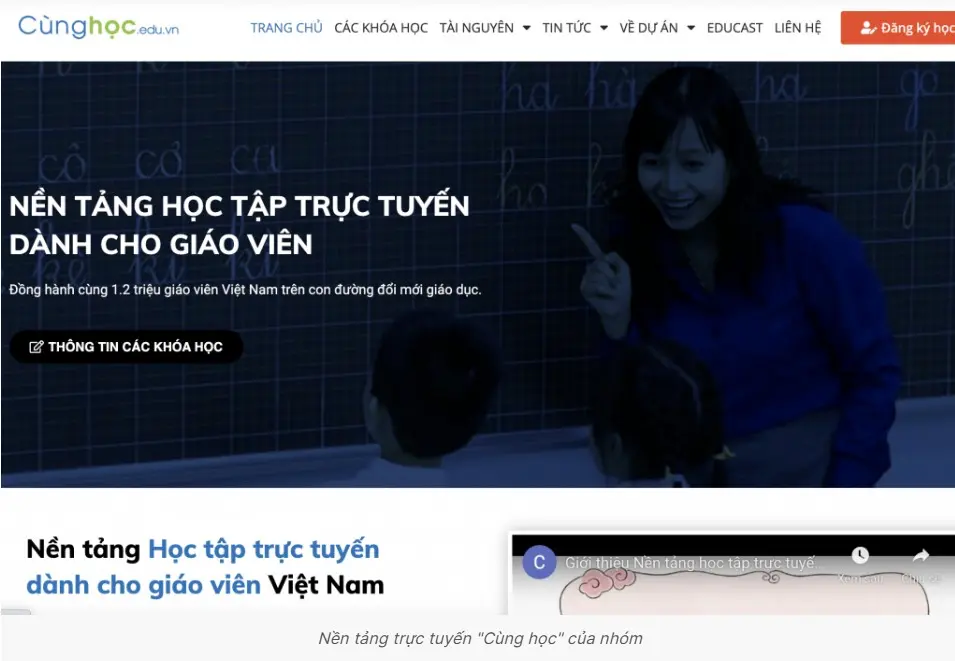
Major
Campus
Graduation Year
Initiative/ Project/ Organisation
Role at the organisation
Current location
Values
Teaching and Learning Literacy for Educators is Vietnam's pioneering MOOCs platform that serves 40,000+ educators nationwide through 35 free online micro-learning courses across three core pillars: "How to learn," "How to teach," and "How to design." Also, the project offers 45 issues of “Teaching and Learning Magazine.” The platform tackles the limited English proficiency and restricted learning access of teachers. Teachers develop autonomous learning habits while immediately implementing new knowledge in their classrooms. The platform eliminates traditional time, geography, and finances barriers, systematically transforming Vietnamese educators into confident lifelong learners for sustainable educational improvement.
Start small, focus on user experience, and let authentic impact drive organic growth rather than forcing adoption.
Our work was motivated by witnessing Vietnamese teachers struggling with limited English proficiency and scarce professional development opportunities, particularly during the COVID-19 pandemic, when educational demands rapidly evolved. We recognized that supporting teachers (the backbone of any education system) would create cascading improvements for millions of students. The core problem we address is the professional isolation and resource limitations that prevent Vietnam's 1.6 million teachers from accessing contemporary pedagogical knowledge and global best practices.
Our platform has transformed Vietnamese education by serving 40,000+ teachers across all provinces, delivering 35 comprehensive courses and 45 specialized magazine issues. The measurable impacts include integration into multiple pedagogical universities as official curriculum resources, reaching thousands of pre-service teachers annually. Unexpectedly, 10% of our learners are parents seeking to better support their children's education, expanding our community impact beyond educators.
Teachers report immediate classroom application of learned strategies, improved student engagement, and enhanced professional confidence. Our major challenge was convincing educators that micro-learning could be as effective as traditional, lengthy workshops. We overcame this by designing 3-5 minute modules with immediate practical applications, proving that quality trumps quantity.
Another significant hurdle was ensuring content relevance across Vietnam's diverse educational contexts. We addressed this through extensive localization and community feedback mechanisms. Our proudest moment was receiving recognition as a Global Education Innovation by HundrED.org in 2021, placing Vietnam alongside leading educational innovations worldwide. This validation demonstrated that developing countries can create solutions with global relevance and impact.
While specific RMIT network connections haven't directly influenced this project, we recognize the immense potential for partnerships with international institutions to scale our impact regionally. We're actively seeking collaborations with universities and educational organizations to expand our model to other Southeast Asian countries, leveraging Vietnam's success to address similar challenges across the region.








%201.svg)